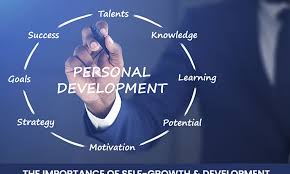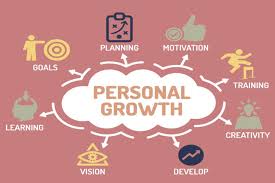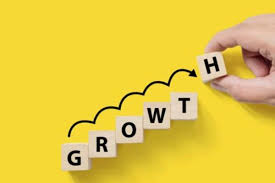Personal growth, also known as self-improvement or personal development, is an ongoing process of understanding oneself, enhancing one’s skills, and working towards becoming the best version of oneself. This journey encompasses various aspects, including emotional, intellectual, physical, and spiritual growth. The process of personal growth is both transformative and empowering, allowing individuals to overcome obstacles, achieve their goals, and live a more fulfilling life.
Understanding Personal Growth

At its core, personal growth is about change and progression. It involves evaluating where you currently stand in life, identifying areas that need improvement, and taking deliberate steps to develop and refine those areas. The journey is deeply personal and varies from individual to individual. While some may focus on career advancement or acquiring new skills, others may prioritize emotional resilience or cultivating better relationships.
Personal growth is not a destination but a continuous process. As life presents new challenges and opportunities, the need for self-improvement evolves. Embracing this mindset of lifelong learning and growth is key to leading a purposeful and enriching life.
The Importance of Self-Awareness in Personal Growth
Self-awareness is the foundation of personal growth. It requires individuals to reflect on their thoughts, emotions, behaviors, and motivations. By gaining a deeper understanding of oneself, it becomes easier to identify strengths and weaknesses, set realistic goals, and make meaningful changes.
Practicing self-awareness involves asking questions such as:
- What are my core values and beliefs?
- What are my strengths and areas for improvement?
- How do I react to challenges or conflicts?
Journaling, meditation, and seeking feedback from others are effective tools for developing self-awareness. With greater self-awareness, individuals can take responsibility for their actions and make choices aligned with their values and aspirations.
Setting Goals for Personal Development
Goal-setting is a crucial aspect of personal growth. Clear, specific, and measurable goals provide direction and motivation. These goals should align with one’s values and reflect the areas of life that need improvement. The SMART criteria—Specific, Measurable, Achievable, Relevant, and Time-bound—are often used to create effective goals.
For example, instead of setting a vague goal like “I want to be healthier,” a more specific and actionable goal would be “I will exercise for 30 minutes, five days a week, for the next three months.”
Regularly reviewing and adjusting goals is also important. Life circumstances change, and so do priorities. Flexibility in goal-setting ensures that individuals remain focused and motivated throughout their personal growth journey.
Overcoming Challenges in Personal Growth
The path to personal growth is rarely linear. Challenges and setbacks are inevitable, but they are also opportunities for learning and resilience. Developing a growth mindset—a belief that abilities and intelligence can be developed through effort and perseverance—is essential for overcoming obstacles.
Common challenges in personal growth include:
- Fear of failure: Fear can paralyze progress. Embracing failure as a learning opportunity helps individuals take risks and grow.
- Procrastination: Putting off tasks hinders progress. Breaking goals into smaller, manageable steps can combat procrastination.
- Negative self-talk: Self-critical thoughts can erode confidence. Practicing positive affirmations and self-compassion can counteract negativity.
Support from mentors, friends, or professional coaches can provide encouragement and guidance during difficult times. Building a strong support network ensures that individuals remain motivated and focused on their goals.
The Role of Emotional Intelligence

Emotional intelligence (EQ) is a critical component of personal growth. It refers to the ability to recognize, understand, and manage one’s emotions while empathizing with the emotions of others. High emotional intelligence enhances interpersonal relationships, decision-making, and conflict resolution.
Key elements of emotional intelligence include:
- Self-awareness: Recognizing and understanding your own emotions.
- Self-regulation: Controlling impulsive behaviors and managing emotions constructively.
- Empathy: Understanding and sharing the feelings of others.
- Social skills: Building and maintaining healthy relationships.
Developing emotional intelligence requires practice and intentionality. Active listening, mindfulness, and seeking feedback are practical ways to enhance EQ.
Cultivating Resilience and Adaptability
Resilience and adaptability are essential traits for personal growth. Life is unpredictable, and the ability to bounce back from adversity is critical for long-term success. Resilient individuals view challenges as opportunities for growth rather than insurmountable obstacles.
Practices that foster resilience include:
- Maintaining a positive outlook: Focusing on solutions rather than dwelling on problems.
- Building a strong support system: Surrounding yourself with supportive and uplifting individuals.
- Practicing self-care: Prioritizing physical and mental well-being through healthy habits.
Adaptability complements resilience by enabling individuals to adjust to changing circumstances. Being open to new experiences, embracing change, and staying curious are key to thriving in a dynamic world.
The Impact of Personal Growth on Relationships
Personal growth not only benefits the individual but also enhances relationships. By developing self-awareness, emotional intelligence, and effective communication skills, individuals can build pulitoto stronger and more meaningful connections with others.
Healthy relationships thrive when individuals bring their best selves to the table. Personal growth encourages individuals to address toxic patterns, practice empathy, and communicate openly. As a result, relationships become more supportive, respectful, and fulfilling.
The Connection Between Personal Growth and Career Success

In the professional realm, personal growth is a driving force behind career success. Continuous learning and skill development enable individuals to stay competitive in a rapidly evolving job market. Traits such as adaptability, leadership, and emotional intelligence are highly valued by employers.
Investing in personal growth can take many forms, including:
- Pursuing professional certifications or courses.
- Seeking mentorship or networking opportunities.
- Embracing feedback and striving for self-improvement.
Personal growth fosters confidence, creativity, and a proactive attitude—qualities that contribute to achieving career goals and creating a fulfilling work-life balance.
The Role of Reflection in Personal Growth
Reflection is a powerful tool for personal growth. Taking time to assess progress, celebrate achievements, and identify areas for improvement ensures that individuals remain aligned with their goals and values.
Daily or weekly reflections can include questions such as:
- What did I learn today?
- How did I handle challenges?
- What can I do differently moving forward?
Reflection fosters mindfulness and gratitude, encouraging individuals to appreciate their journey while staying focused on future aspirations.
Embracing Lifelong Learning
Lifelong learning is at the heart of personal growth. It involves a commitment to acquiring new knowledge, skills, and perspectives throughout one’s life. Whether through formal education, reading, or exploring new hobbies, continuous learning keeps the mind sharp and opens doors to new opportunities.
The willingness to learn also fosters humility and curiosity. It reminds individuals that there is always room for improvement and that growth is a never-ending process.
Conclusion: The Journey Never Ends
Personal growth is a transformative journey that empowers individuals to unlock their full potential. It requires self-awareness, goal-setting, resilience, and a commitment to continuous learning. By embracing challenges and remaining open to change, individuals can lead more meaningful, fulfilling, and successful lives.
The path to personal growth is unique for everyone. Whether it involves pursuing a new skill, strengthening relationships, or cultivating emotional intelligence, each step taken contributes to a richer and more purposeful existence. The journey never truly ends, but every moment spent on self-improvement is a step toward becoming the best version of oneself.







